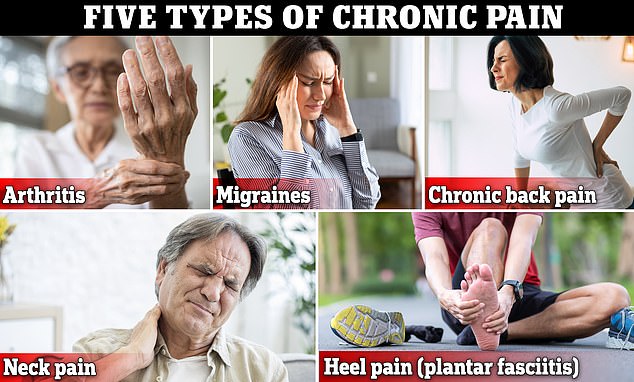Simple daily exercise may provide more health benefits than prescription drugs
Mindfulness is seen as a solution for everything from anxiety to depression, but new research suggests it may also help with chronic pain.
Veterans who took mindfulness classes for a year were better able to manage their pain than veterans who received only traditional treatments for chronic pain, such as pain medication and therapy.
This meditative practice, which has become increasingly popular in recent years, involves breathing deeply and focusing on the present moment. Participants are asked to allow their thoughts and emotions to arise naturally, without acting on them.
“Mindfulness-based interventions (MBIs) can improve chronic pain and comorbidities, such as post-traumatic stress disorder (PTSD), sleep disturbances, depression, and substance abuse, and are now recommended as first-line treatment,” wrote study author Dr. Diana Burgess, a social psychologist at the VA Health Care System.
Mindfulness can help people cope with chronic pain and related problems such as depression, PTSD and fatigue, the study found
Chronic pain affected an estimated 51 million American adults in 2021, According to the CDCand is defined as persistent pain lasting more than three months.
It has been linked to dementia, increased risk of suicide, and substance abuse.
Veterans are more likely than the average adult to experience this condition.
Because chronic pain can be caused in almost any part of the body, there are several possible treatments.
Sometimes it includes physical therapy, psychological therapy and medications. The medications they use can range from acetaminophen to antidepressants to opioids.
Researchers are often looking for better ways to tackle this widespread and difficult-to-treat condition. The new study, which Posted in JAMA Internal Medicineinvestigated whether low-cost mindfulness programs could help people cope with pain.
The 694 participants were divided into three groups. The first group received traditional pain management, the second group received eight 90-minute group mindfulness lessons, and the third group received eight self-guided mindfulness lessons.
These classes included videos and workbooks that explained mindfulness as a concept and encouraged participants to use it to manage their daily pain and emotions. The group classes also included discussions.
After a year, the groups that had received mindfulness lessons had less severe pain, less anxiety, fatigue, depression and PTSD symptoms, and they also had better physical functioning than the group that had received traditional therapy.
The mindfulness groups reported between 30 and 50 percent improvement in symptoms after just ten weeks in the program, and that improvement remained consistent throughout the rest of the study.
This could help reduce the number of people who rely on medications to treat their chronic pain.
Before doctors stopped prescribing painkillers, opioids were prescribed to as many as 100,000 people. 900,000 veterans per yearAccording to a report from the American Veterans Administration (AFP), the number of veterans overdosing increased by 53 percent between 2010 and 2019. 2022 NYU study.
These trends have sparked a broader movement within veterans governance to develop programs that treat chronic pain without drugs.
Previous studies have shown that mindfulness can help people cope with anxiety and depression. Furthermore, a 2015 study from anesthesiologists at the University of California, San Diego suggested that mindfulness can reduce the amount of pain a person experiences.
But sometimes mindful meditation practices are expensive and time-consuming.
That is why this new study investigated to see whether cheaper mindfulness methods can also help people cope with pain.

Between 2019 and 2021, the prevalence of chronic pain among US adults ranged from about 20 percent to nearly 22 percent
There was little to no difference in outcomes between the group that took the lessons alone and the group that took the lessons collectively.
Dr. Burgess wrote that this was “somewhat surprising,” as studies of veterans’ psychological well-being typically suggest that social support is important.
The study authors noted that they could not rule out the effects of other treatments. In addition, it is unclear whether people in the mindfulness groups also used traditional therapies, such as counseling or medications.
But they wrote that most treatments for chronic pain involve multiple strategies. So this could be an important way to help people manage their pain, Dr. Burgess said.
She concluded: ‘Relatively resource-efficient telehealth-based MBIs could accelerate and improve the implementation of nonpharmacologic pain management across healthcare systems.’
